Andrew Mulligan was a skilled hockey player who played throughout high school and into college at High Point University in North Carolina. Mulligan had a history of concussions but one final concussion after his freshman year of college caused drastic changes to his personality, mood, and cognition. Mulligan took his own life in 2017 at the age of 22. After his death, his family donated his brain to the UNITE Brain Bank where researchers diagnosed him with Chronic Traumatic Encephalopathy (CTE) and Post-Concussion Syndrome (PCS). Mulligan’s family shared his story in order to raise awareness and help others struggling with PCS or suspected CTE.
This is the story of my brother and best friend Drew.
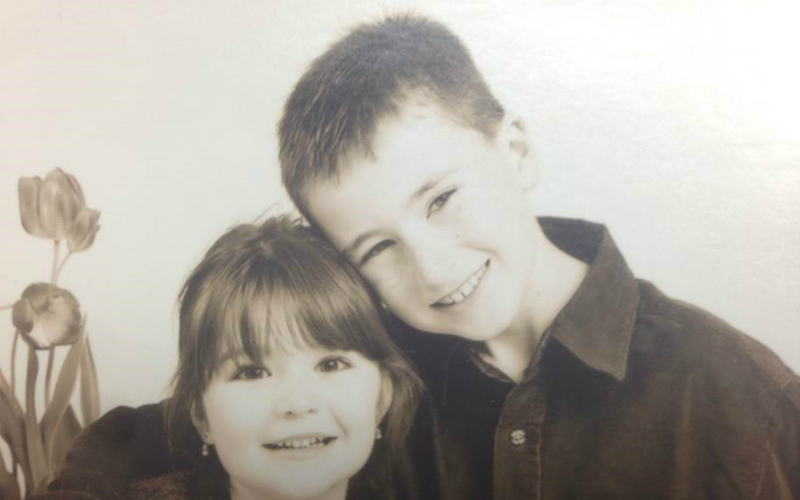
Andrew ‘Drew’ Mulligan, was born on June 15, 1993. It wasn’t much longer after that day that Drew met the love of his life: the sport of ice hockey. Being 4 years younger than Drew, I don’t remember a time where his schedule did not revolve around practices or games. I know it’s cheesy to say but he really did eat, breathe and sleep hockey. Even towards the end when things got bad, hockey always put a smile on D’s face. And for that, I am eternally grateful.
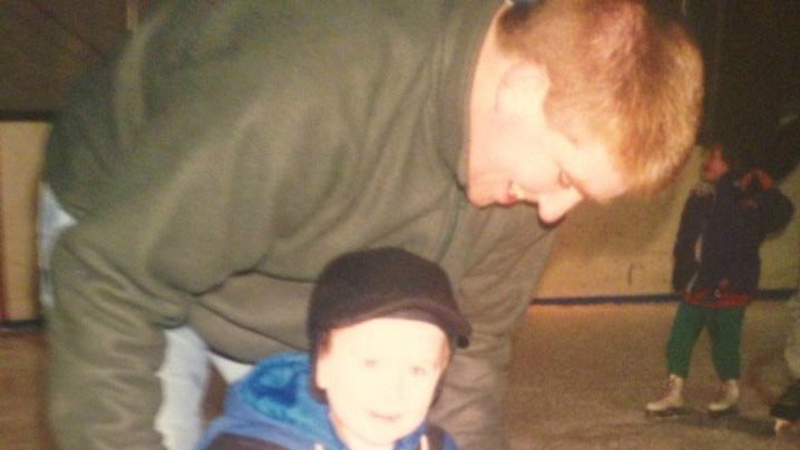
Drew played hockey his whole life, spending weekends traveling with his teams and weeknights practicing. His senior year of high school, he lived with our aunt in Pennsylvania so he could play juniors hockey. He took online classes before returning back to our local high school when the season ended. Drew graduated from RHAM High School in 2011 and then went away to North Carolina to attend High Point University.

Everything seemed to be going well for Drew. As hard as it was saying goodbye to him and adjusting to being an only child, he was happy. He quickly made friends and started to get serious about his school work. But, when I think of High Point now, one story comes to mind… one where his concussions impacted him off the ice. He was playing basketball with friends and fell, hitting his head. Luckily one of his friends from home also went to school there and he called her. Obviously, when you hear someone hits their head, it is a given that they are in a lot of pain. However, his speech was slurred and he wasn’t making much sense. This is when I began to realize how damaging head trauma is.
I always knew Drew had a history of concussions. At a very young age, he got his first one during a game. Being 6’4” and scrappy, Drew was always the first to jump off the bench to defend his teammates or run his mouth and antagonize his opponents. Being the “enforcer” comes with lots of responsibilities, but in Drew’s case, it also came with a lot of concussions.
To be honest, I am not sure just how many concussions D had in total… sometimes I felt like a simple bump of the head brought on symptoms. Sometimes, I think he wouldn’t say anything because he didn’t want to be taken out of the game. But, it wasn’t until the last concussion that made brushing them under the rug impossible.
I will never forget where I was when I got the phone call saying that everything changed for the first time. He had come home from college his freshman year and joined another junior hockey team in Massachusetts. I was at my friend’s house when the home phone rang for me. It was my mom. I always had a fear of not being at Drew’s game in case something happened. 9 out of 10 games he was ok… This game he wasn’t. Someone checked him, but it was not a normal check. The other kid’s stick was pushed against his chin, popping Drew’s helmet off. When he landed, his head hit the boards then the ice. My mom had said he was coming home after going to the hospital.
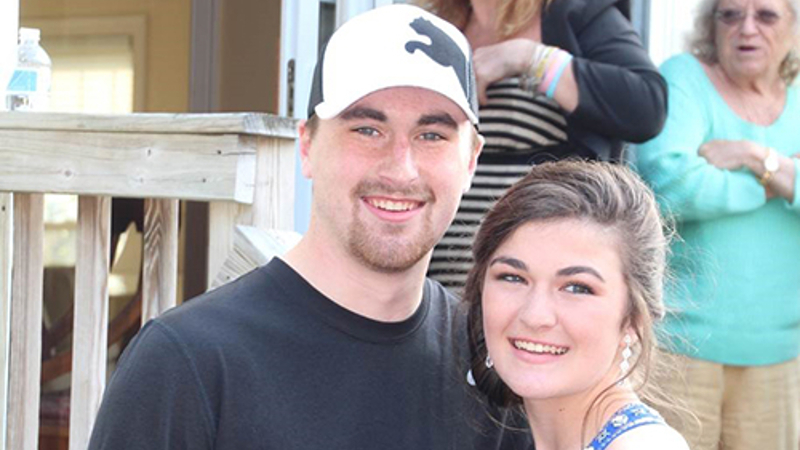
When he came home, he was out of it and in a lot of pain. His last memory was being hit, but he completely forgot the process of going to the hospital and getting home. After going to the doctors, they told him that his brain damage was so severe, he was never to play a contact sport again. This is when his worst nightmare came true and mine started.
After that hit, Drew was never the same. For weeks, he sat in a dark room refusing to talk to anyone. Yes, he was in pain from his concussion… but I think that what hurt more was losing hockey. Desperate to get back on the ice, he used to hide his hockey bags in the bushes in hopes my mom didn’t see.
I find it hard to verbalize who Drew was, because quite honestly, I have never met anybody like him. He was kind, but protective. He was smart, but an idiot at the same time. He was capable of being serious, but preferred not to be. After a bad day, I would come home to his freckled-face and goofy smile and no matter my mood, laugh until tears rolled down my cheeks. He made everyone laugh. Underneath his 6’4″ stature, Bauer jacket and exterior “game face,” lay a heart of gold. He would do anything for anyone if they just took the time to ask. He did everything for me. Most of what I know today, Drew taught me. Most of who I am, Drew inspired me to be.
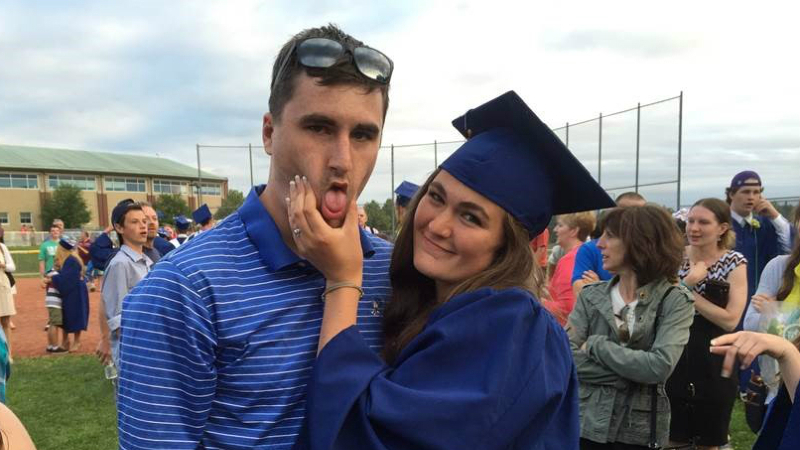
After that hit, the Drew I knew was not there anymore. His whole demeanor changed. Drew scored a 2100 on his first attempt at SATs. However, simple things that once were easy for my intelligent brother to accomplish became frustrating. School work that I used to ask him for help with became so challenging for Drew, I found myself tutoring him. He became irritated a lot faster, snapped a lot quicker and smiled a lot less.
With this being said, Drew attended trade school to become an electrician and graduated top in his class. The work, though harder for him, got done. Concentrating, which was again more difficult, was accomplished. He did it. He started playing men’s league, which was non-checking, and reintroduced hockey into his life. He got hired by a local electrician shortly after and started working immediately. He loved it. I was so proud of him. I thought things were looking up for Drew and I had high hopes that his new-found success was enough to keep him here. I so badly just wanted him to be happy.
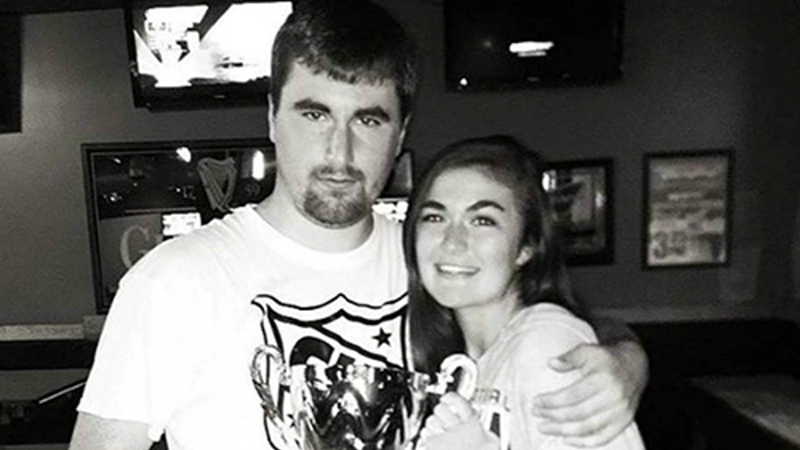
However, on February 17, 2016, Drew died of suicide. This was when my life changed forever. The pain is indescribable and every day it consumes me. It has been over a year and I still can’t understand why or how… “why did he leave, how am I never going to hug my brother ever again, why didn’t he say something that night, how am I going to live life without my best friend?” I will never get any of these questions answered.
Drew used to tell me that he knew his brain was not working and that there was something wrong. He said he could feel himself being incomplete. He felt his brain change. I so desperately wanted to help him or give him answers myself. However, at the time, there were none.
However, after deciding to donate Drew’s brain, some of my family’s question found clarity. His brain was diagnosed with chronic traumatic encephalopathy (CTE) as well as Post-Concussion Syndrome. The more I learn about CTE and PCS, the more I answer Drew’s questions. I wish I could call him and tell him he wasn’t crazy… that the changes and confusion he was feeling, he was not alone in feeling. Maybe he would still be here today if he had the answers.
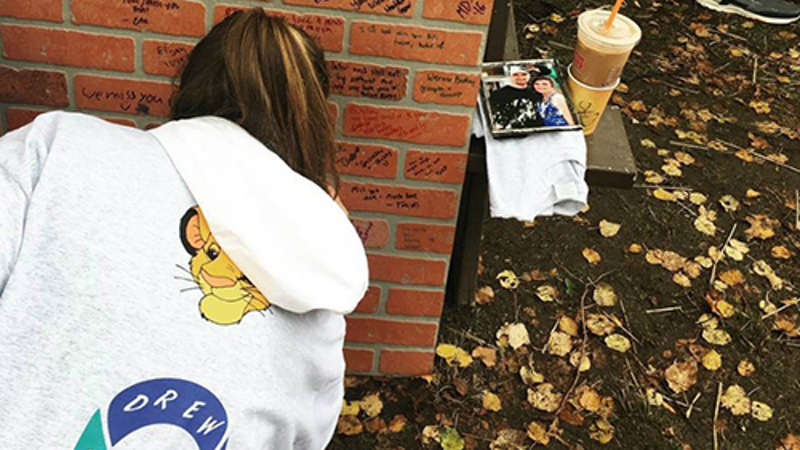
My brother’s death was my worst nightmare that every day I wish I could wake up from. But I know I never will. With this being said, what my family and I went through is something that another family should never have to experience. Drew’s death is a reminder of how important safety and observation is. No matter how bad they want to get back on the ice or field, don’t let them until they are ready. No matter how much they love the sport, no game is ever worth saying goodbye.
Although Drew’s earthly journey has ended (far too soon), his passing continues to teach me things every day. I now realize that brain injuries are not something to mess with. Although the consequences can be life-altering, if you realize the severity and the potential dangers, avoidance is possible. So, if you or anybody you know suffers from similar conditions, please please please seek proper medical attention for the sake of you and your family. Had Drew known then what I know now, things could be different. Regardless of circumstances, Drew has always been and will always be my big brother–partner in crime–bodyguard (at least he’d like to think so)–role model, but most importantly–my very best friend. I know he walks beside me each and every day and I feel blessed to even have had the opportunity to have him in my life for the time that I did. We’ll always be together in mind & in spirit, jamming to our favorite song… “Like an ocean you can’t see, but you can smell…but I do know one thing, where you are is where I belong.”
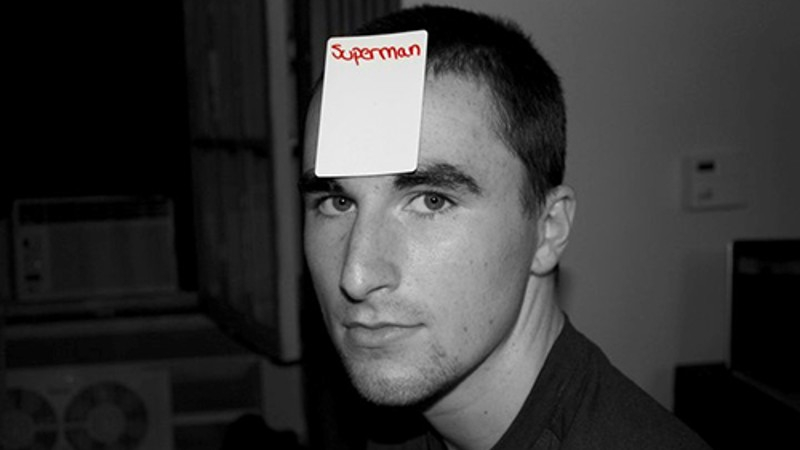
Since his passing, our family and friends have been committed to spreading the word of CTE and brain injuries. Each year we host an annual golf outing in his honor. All proceeds are donated to Boston University and the brain bank to further research and hopefully help other families.
However, I do not want his death to be the only thing his legacy stands for. I want my brother to be remembered for the happy, loving, wiseass he was. I want memories of Drew to bring smiles to people’s faces. I want Drew to be remembered as the real Drew, who he really was before CTE. With this being said, I want his absence to serve as a constant reminder to all…
No matter how much they love the sport, no game is ever worth saying goodbye.
Love you always, D
Continuing the Legacy
A five-year follow-up to Drew’s story, written by Karly Mulligan
Time is a funny thing. These past five years have managed to feel like five minutes and five decades all at the same time. It was right around five years ago that I sat down to write my original piece about my brother’s story and my family’s decision to donate his brain to CLF. A lot has changed in this time but my intentions for writing and sharing my brother’s story have remained consistent a half decade later. As is the case for many of the Legacy Donor families, the decision to donate your loved one’s brain was not an easy one. There is not a day that goes by where I do not miss him. However, personally, I think this was one of the best decisions my family and I could have made. There is power in education and knowledge. Those who suffer or suffered from brain injuries as well as their friends and family are not alone and are heard. And the efforts put forward by CLF as well as the Legacy Donor families are all striving towards making stories like my family’s no longer needing to be told. I am honored to be a part of such an amazing movement.
When I first lost my brother Drew, my baseline knowledge for concussions and the effects of brain injuries was limited. Drew was a hockey player who was labeled as an “enforcer”, so fights and concussions were not foreign concepts to me. His protective nature translated on and off the ice and his first documented concussion occurred in youth hockey at a very young age. While I knew what a concussion was, something much bigger was happening right in front of my eyes. I understood only what he was able to express to me about his symptoms, but never knew what those symptoms spelt out. As my knowledge grew, the more I was able to make sense of what my brother was describing. The headaches, the inability to focus and remember things, the irritability… it all started making sense. And while the diagnosis was not an easy pill to swallow, I personally felt like this may have been one of the last gifts I could have given my brother. This was validation for him. What he was describing was something real. What he was feeling was valid and had a medical catalyst behind it. What he struggled so hard to explain and express was finally labeled – stage 1 (of 4) Chronic Traumatic Encephalopathy and Post-Concussion Syndrome (PCS).
While I knew the diagnosis did not change that my brother’s life was over, it did spark something inside of me that has since shaped mine. Selfishly, I admit I was and still am worried that his memory will be forgotten. But, more importantly, I am worried that his passing would be in vain. As I involved myself in the CLF, it became apparent to me very quickly that my brother’s story is one that many people can relate to. My family’s grieving was one that so many others are also experiencing. Friends and teammates of my brother’s too started expressing eerily similar symptoms and experiences. I knew that even if it would touch one person who read my piece I wrote on my experience with CLF as a donor sister, then it was worth it. I applaud each and every person that has had the courage to share their stories as they truly do make a difference. The more we talk and share, the more educated people will be. This is in locker rooms, on the side lines, at dinner tables. This is looking out for friends, family and teammates being an advocate for them. This is knowing that brain trauma is real and that there are resources out there. This is knowing you are not alone and that foundations like CLF are here to help. This is knowing your story and experiences matter and your voice can make a difference.
Through finding my voice, I was fortunate to have others who also shared the same mentality as me. Family, friends and those closest to Drew also agreed that in addition to donating his brain, there was more we wanted to do to contribute. My family is forever grateful for the support we have received and continue to receive because we could not have done it alone! We have held six annual Drew Mulligan Memorial Golf Outings, which is a great day for charity as well as a conversation starter in Drew’s memory. A group of families who have been friends of ours since the start of hockey have been beyond instrumental with making that day happen. In addition, teammates, friends, teachers and supporters show up each year to not only celebrate the life of Drew, but to play golf in the name of concussion research. Each year, the proceeds are donated toward CLF and we look forward to continuing to do so. I have been fortunate enough to attend a few CLF Galas, which highlight all the progress that has been made in both education, prevention and resources available.
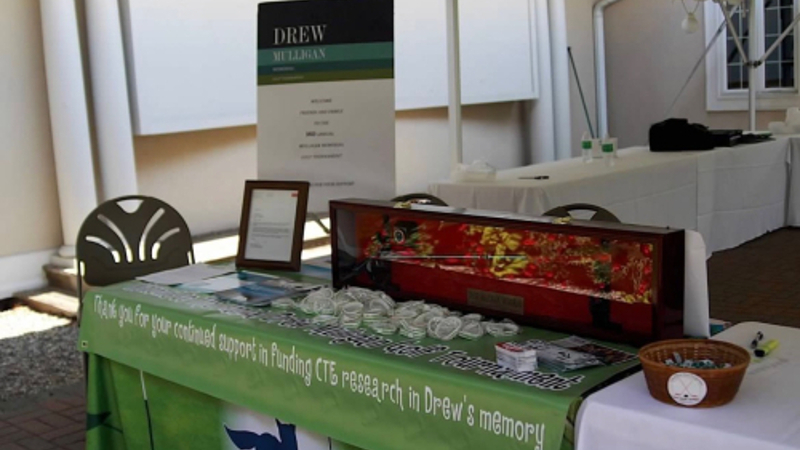
The progress made in the last five years alone has blown me away and motivates me to continue. I am excited to see where things will be in another five years let alone decades later when my kids and grandkids are playing sports. And above all, I am hopeful.
Thank you so much for reading!


